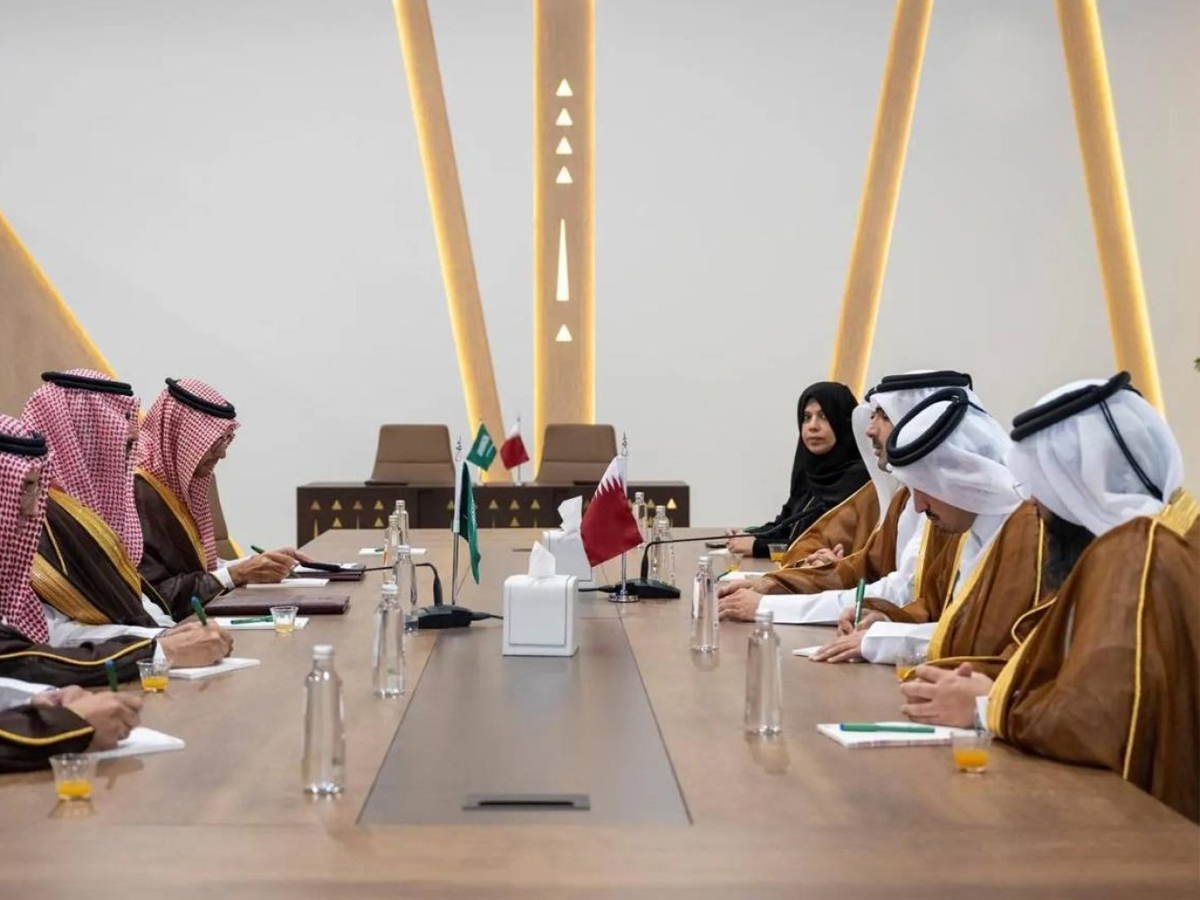家 – 卡塔尔的文化
卡塔尔的文化是传统与现代性的迷人融合, 深深植根于它的 贝都因人遗产, 伊斯兰原则, 以及将其转变为世界上最富有国家之一的快速发展. 随着卡塔尔在全球舞台上的不断发展, 举办国际活动并现代化其基础设施, 该国设法保存和庆祝其丰富的文化身份. 本文探讨了各个方面 卡塔尔文化, 包括其历史, 家庭价值观, 社会习俗, 宗教, 和艺术, 对定义这个充满活力的国家的传统和实践进行深入的探讨.
对卡塔里文化的历史影响
卡塔尔的文化身份与它的文化身份紧密相关 贝都因人的根源. 在20世纪发现石油之前, 卡塔尔在很大程度上被游牧贝都因人部落居住,他们穿越了严酷的沙漠景观. 这些部落过着简单的生活, 依靠 骆驼放牧, 珍珠, 和 钓鱼 维持自己. 沙漠中的生活很困难, 以及款待的价值观, 社区, 机智对于生存至关重要. 这些价值观已经忍受并继续在当今的卡塔里文化中发挥核心作用.
这 发现石油和天然气 在20世纪中叶标志着卡塔尔的转折点, 将其从适度的贸易和珍珠社区转变为一个富人, 现代状态. 然而, 尽管发展迅速, 卡塔尔一直致力于保护其文化遗产. 政府已投资 文化保护 诸如 卡塔拉文化村 和 伊斯兰艺术博物馆, 展示了该国的历史及其对更广泛的阿拉伯和伊斯兰世界的贡献.
卡塔里文化中的宗教
伊斯兰教 是卡塔里文化的核心, 它塑造了日常生活的许多方面, 包括社会规范, 法律结构, 和个人行为. 卡塔尔大多数人口遵守 逊尼派伊斯兰教, 伊斯兰原则被整合到法律体系中, 这是基于 伊斯兰教法. 伊斯兰的影响超出了宗教实践,以决定家庭生活的规范, 款待, 谦逊, 和性别角色.
祷告 是卡塔尔日常生活中不可或缺的一部分. 这 宣礼 (打电话给祈祷) 每天五次在街道上回声, 打电话给穆斯林表演他们的 萨拉特 (祈祷). 企业通常会短暂停止操作以允许祈祷, 清真寺是社区的中央聚会场所. 星期五, 伊斯兰圣日, 特别重要, 和 星期五 (周五祈祷) 是男人的公共活动, 经常伴随着讲道的讲道, 社会的, 或宗教问题.
伊斯兰节在卡塔尔的文化日历中起着重要作用, 最重要的是 斋月, 禁食一个月, 祷告, 和反思. 斋月期间, 穆斯林从黎明到日落禁食, 避免进食, 喝, 吸烟, 和其他身体需求. 现在是精神成长的时候, 慈善, 和家庭团结. 一个月结束 开斋节, 以公共祈祷为标志的庆祝活动, 宴饮, 和礼物的交换. 另一个重要的节日是 古尔邦节, 纪念先知易卜拉欣的意愿 (亚伯拉罕) 牺牲他的儿子作为对上帝的服从行为. 这些节日是公共聚会的时期, 慈善, 以及加强家庭和社区联系.
家庭和社会结构
家庭 是卡塔里社会的基础, 家庭关系被深深地珍视. 家庭单位通常延长, 与祖父母, 阿姨们, 叔叔们, 表兄弟, 和其他亲戚在日常生活中扮演重要角色. 对家庭的忠诚 是卡塔里文化中最重要的美德之一, 家族纽带是通过定期聚会和庆祝活动来培养的.
传统上, 卡塔里家庭 是父权制, 与父亲或长子一起担任家庭负责人. 他的权威在所有重大决定中受到尊重, 包括与婚姻有关的, 教育, 和职业道路. 就是说, 妇女在家庭中也受到高度尊重, 特别是他们作为母亲和照料者的角色. 妇女参与教育,劳动力在近几十年来显着增长, 许多卡塔里妇女从事高级学位和职业职业.
尊重长辈 是卡塔里文化中家庭结构的另一个关键方面. 长者因智慧和经验而受到尊敬, 预计年轻的家庭成员将在生活的各个方面表现出对他们的尊重. 这方面也扩展到社区领导人和宗教人物.
热情好客和社会习俗
卡塔里文化最持久的方面之一是它的重视 款待. 来自该国的贝都因人过去, 当沙漠中的生存取决于别人的慷慨, 款待仍然是卡塔尔的高度珍贵的美德. 卡塔里斯以亲切的主持人感到自豪, 和客人受到最大的尊重和善良.
卡塔里房屋的游客经常受到欢迎 加瓦 (阿拉伯咖啡) 和 日期. 加瓦, 用豆蔻酿造,经常用传统的锅供应 好的, 是卡塔尔酒店的象征. 它用小杯子送, 预计客人至少会喝一杯. 表示他们已经够了, 宾客结束后应该轻轻摇晃杯子. 拒绝款待被认为是不礼貌的, 由于主持人为访客提供最大的贡献而感到自豪.
卡塔尔酒店的另一个重要方面是 议会, 一个传统的客厅,男人聚集在一起讨论业务, 政治, 和个人事务. Majlis是社交和建立联系的空间, 经常喝食物和饮料. 而男人和女人通常在传统环境中分别聚集, 款待和社区的重要性是两者的核心.
着装和谦虚
卡塔里斯非常重视 谦逊, 这反映在他们的传统礼服中. 卡塔里男子 通常穿 托贝 (也称为Dishdasha), 覆盖身体的长白色长袍, 以及 古特拉 或者 keffiyeh (头盖) 用一个 琼脂 (黑线). 这种传统的着装既适用于炎热的沙漠气候,也是文化认同的象征. 男人非常小心地表现出色, 因为他们的外表不仅反映了自己,而且反映了家人.
卡塔里妇女 传统上穿 长袍, 一个覆盖身体的长黑色斗篷, 与A配对 谢拉 (覆盖头发的围巾). 阿巴亚(Abaya)是谦虚和文化自豪感的象征, 它也被视为一种时尚陈述, 许多妇女选择不同风格和点缀的阿巴亚斯. 在公共场合, 预计卡塔里妇女会穿着适度的衣服, 这也扩展到外国游客, 谁应该在公共场所在公共场所中确保肩膀和膝盖被遮盖,以表示尊重当地习俗.
节日和庆祝活动
卡塔尔国庆日 (12月18日) 是该国最重要的世俗庆祝活动之一, 标记一天 1878 谢赫·贾西姆·本·穆罕默德·阿尔·塔尼(Sheikh Jassim bin Mohammed Al Thani)继承了他的父亲并建立了卡塔尔州. 在这一天, 卡塔里斯通过游行庆祝他们的民族骄傲, 烟花, 和展示该国遗产的文化活动. 多哈的街道充满了传统音乐, 舞蹈, 并展示卡塔里文化, 允许公民和外籍人士参加庆祝活动.
其他关键庆祝活动包括 加兰高, 摩擦的传统,儿童穿着传统衣服,挨家挨户的歌曲并从邻居那里收集糖果. 这个事件, 类似于万圣节, 植根于共享和社区的想法,并受到儿童和家庭的喜爱.
艺术和文化表达
卡塔里文化非常重视 艺术 和 文化表达, 传统音乐, 舞蹈, 诗歌在社会中扮演重要角色. 文化表达最具标志性的形式之一是 蔬菜 诗, 一种源于贝都因人的经文形式,今天仍然受到广泛赞赏. 这些诗经常讲爱的故事, 荣誉, 和沙漠生活, 并在社交聚会和文化活动中表演.
传统的卡塔里音乐 也受到该国航海过去的影响, 带有像 沉香木 (一种琵琶) 和 tabla (一个手鼓) 在表演中扮演关键角色. 铝 今天, 传统的剑舞, 是国家庆祝活动和节日的中心, 由载剑和唱歌时在行跳舞的男人表演.
卡塔尔在像 伊斯兰艺术博物馆 和 卡塔拉文化村, 两者都庆祝该国的过去,同时促进当代艺术和创造力. 卡塔尔还是成长中的电影界和几个国际文化节的所在地, 反映其将传统与现代性融合的努力.
结论
卡塔尔的文化是一种富有而复杂的挂毯 伊斯兰教信仰, 贝都因人遗产, 和 现代的全球影响力. 尽管它迅速发展和现代化, 卡塔尔设法保留并庆祝其传统, 价值观, 和社会习俗. 从家庭和款待的重要性到对宗教和谦虚的深刻尊重, 卡塔里文化仍然是该国身份的重要组成部分,因为它在世界舞台继续发展.

卡塔尔的传统和文化令人着迷地融合了古代贝都因人的遗产, 伊斯兰教信仰, 充满活力的社区精神吸引您亲自探索和体验.
版权 2024 © 卡塔尔文化版权所有